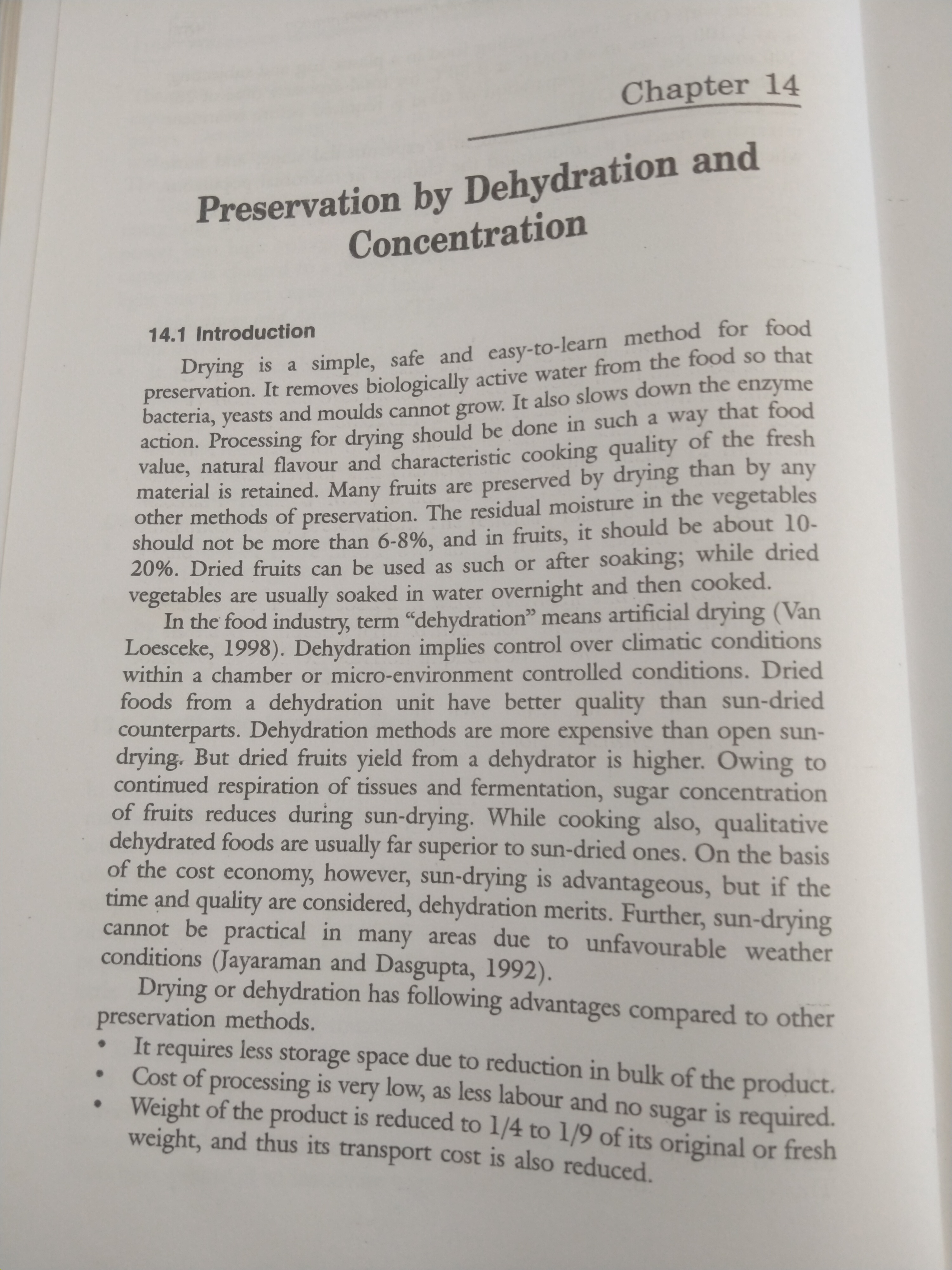What are the advantages of preservation by dehydration and concentration in food processing?

Understand the Problem
The question is asking about the process of preservation by dehydration and concentration, particularly focusing on the advantages of dehydration methods and their applications in food preservation.
Answer
Extended shelf life, less storage space, reduced weight, lower transport costs, maintained nutritional quality.
The advantages of preservation by dehydration and concentration include extended shelf life, requirement of less storage space, reduced weight and transport costs, and maintenance of nutritional quality.
Answer for screen readers
The advantages of preservation by dehydration and concentration include extended shelf life, requirement of less storage space, reduced weight and transport costs, and maintenance of nutritional quality.
More Information
Dehydration and concentration in food preservation help extend shelf life by removing moisture, which inhibits the growth of bacteria, yeast, and mold. This method also reduces the bulk and weight of food, making it easier and cheaper to store and transport, and often retains more nutrients compared to other preservation methods.
Tips
Avoid assuming that all preservation methods compromise nutritional quality equally; some, like canning, can lead to greater nutrient loss.
Sources
- What are the advantages of preservation by dehydration and concentration in food processing? - webmd.com
- What are the advantages of dehydration in food preservation? - quora.com
- 9 Benefits of Dehydrating Food that May Surprise You - theseasonalhomestead.com
AI-generated content may contain errors. Please verify critical information